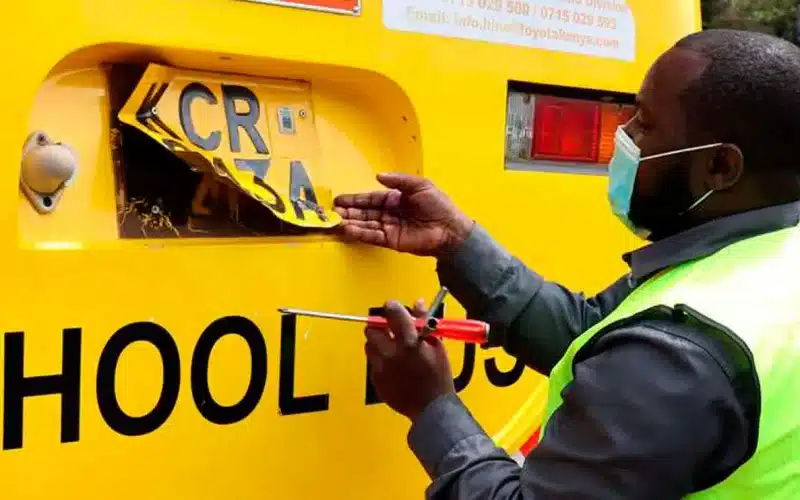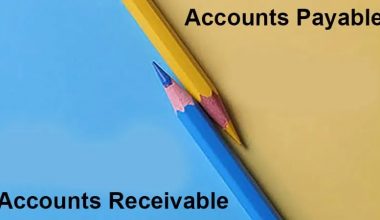Whether you’re a new car owner in Kenya or have upgraded to a larger vehicle, knowing how to apply for a new number plate is crucial. In this article, I’ll lead you through each stage of the procedure, explaining how to apply for a new number plate in Kenya and ensuring you have all you need to complete the work confidently and easily.
Registering for a new number plate not only meets legal requirements but also guarantees that your vehicle is properly documented and identifiable to traffic authorities. To make this procedure as straightforward as possible, we’ll break down the steps, document needs, fees, and frequently asked questions.
Why Do You Need a New Number Plate?
Here’s why having a new number plate is critical to vehicle security, legal compliance, and general road safety in Kenya.
#1. Ensure Legal Compliance and Road Safety
In Kenya, every vehicle must have a registered and visible number plate to operate legally on public highways. This requirement is used as a type of vehicle identification, allowing authorities to trace and verify car ownership. Whether you’re purchasing a new automobile, transferring ownership, or importing a vehicle from overseas, obtaining a new number plate guarantees that your vehicle is registered with the National Transport and Safety Authority (NTSA) and fulfills legal identification regulations.
#2. Vehicle Identification and Accountability
Number plates are critical for tracing and authenticating automobiles, particularly in cases of accidents, traffic offenses, and criminal activity. For example, if a vehicle is involved in an incident, police enforcement can quickly identify it and contact the owner using the vehicle’s registration information. New, improved number plates also deter theft and vehicle fraud because they are now more difficult to reproduce due to the unique security measures included in their design.
#3. Enhanced Security and Fraud Prevention
The government recently introduced security-enhanced number plates, which now incorporate unique identifiers like holograms, watermarks, and scannable codes. These elements serve to prevent vehicle-related crimes by making it more difficult for thieves to fabricate or duplicate plates. Kenya’s upgraded plates comply with international security requirements, providing additional protection to car owners while also making it easier for law enforcement to precisely identify vehicles. This added layer of security is especially useful for people buying high-value cars or commercial vehicles, which are more susceptible to fraud or theft.
#4. Compliance with Imported Vehicles
Imported automobiles must acquire a new Kenyan number plate before they may lawfully travel on Kenyan roads. This rule ensures that all automobiles entering the country are traced and adhere to the country’s road safety and tax regulations. Imported automobiles are normally subjected to a thorough inspection and registration process with the NTSA, which includes a new number plate to ensure full compliance with national regulations.
#5. Upgrade to meet modern standards.
In recent years, the NTSA has produced more advanced, visually different number plates to replace older ones that may not have modern security measures. Some car owners prefer to upgrade their old plates voluntarily to benefit from the improved security of the new design, lower the danger of fraud, or just modernize the appearance of their vehicles. Enhanced plates contribute to making Kenyan roads safer and more secure by maintaining a standardized system for vehicle identification across the country.
Key Advantages of New Number Plates in Kenya
- Better Security: New plates include high-tech security features that make replication impossible and help to prevent car crime.
- Enhanced Identification: Unique identifiers make it easier for law enforcement and the NTSA to trace down vehicles involved in incidents or illegal activity.
- International Compliance: Updated plates meet global requirements, which can help people traveling internationally or exporting vehicles.
- Streamlined Legal Process: New plates ensure that imported vehicles or those under new ownership comply fully with Kenyan rules.
- Modernized Appearance: Enhanced plates provide vehicles a new, modern appearance that aligns with Kenya’s updated registration criteria.
Kenyan drivers who upgrade or receive a new number plate benefit from increased security, greater vehicle tracking, and conformity with national and international standards, all of which contribute to safer and more organized roads.
What You Need Before Applying for a New Number Plate

Gathering all required documentation ahead of time can help you streamline the application process and avoid delays. Here’s everything you’ll need:
#1. Original Logbook
The logbook is an official document provided by the National Transport and Safety Authority (NTSA) to establish vehicle ownership. It contains vital information such as:
- Vehicle Registration Number: Confirms the vehicle’s formal registration.
- Chassis and Engine Numbers: These unique identifiers aid in the prevention of vehicle theft and unlawful transactions.
- Owner Information: The registered owner’s name and address are provided here; make sure they match your current information. If there are any discrepancies, you may need to correct your logbook information before filing for a new plate.
#2. National Identification Card (ID).
Your national ID serves to authenticate your identity and citizenship status. Non-Kenyans can utilize their valid passports. The ID or passport must be presented in its original form; certain agents may also require a copy.
- For Non-Citizens: In addition to your passport, you must have a work permit or a student pass to show your lawful residency in Kenya.
- Tip: Keep your ID up to date. If your ID has expired or does not match any other evidence, the process may be delayed.
The KRA PIN is required for any vehicle-related transactions, as it connects your application to your tax records. Here’s why it matters:
- Tax Compliance: A KRA PIN verifies that you are registered with the Kenya Revenue Authority, allowing for accurate record-keeping and tax compliance.
- Proof of Legal Financial Standing: Having a KRA PIN promotes transparency in car transactions and helps to prevent fraudulent applications.
If you are asking for a new number plate on behalf of someone else, you must also provide their KRA PIN certificate. You may quickly print your KRA PIN via the official KRA iTax webpage.
#4. Vehicle Importation Documents (for imported vehicles)
Those asking for plates on imported automobiles must provide particular importation paperwork. This includes:
- Certificate of Importation: This document confirms that the car was legally imported and fulfills Kenyan specifications.
- Bill of Lading: A document from the shipping business outlining the vehicle’s transportation route.
- Customs Clearance Certificate: Proof that the car has been through customs and all duties have been paid.
If your car was imported, these documents are required to ensure that it meets all Kenyan road and safety rules.
Having these documents in order ensures a more efficient application procedure.
How to Get a New Number Plate in Kenya
Let’s go into the specifics of how to apply for a new number plate in Kenya.
To begin, you must have an active account with the NTSA’s Transport Integrated Management System (TIMS), which will serve as your primary access point for all vehicle-related applications, payments, and notifications.
- Visit the NTSA TIMS Portal: Open your web browser and input the official NTSA TIMS URL.
- Create an Account or Log In: New users should pick “Register” and input their ID or passport number, registered phone number, and email address. You will also need to create a secure password.
- Account Activation: You will receive an SMS verification code to your registered phone number. Enter this code in the portal to activate your account and finish the registration procedure.
Once you’ve set up your TIMS account, it will serve as the central center for vehicle management duties, allowing you to track application processes, make payments, and receive immediate NTSA updates.
Step #2. Fill out the application form
After login in, navigate to the application section for number plates and follow these procedures.
- Enter Your Personal Information: Please provide accurate information, such as your full name, ID or passport number, and contact details.
- Input Vehicle Details: Enter information such as the vehicle’s chassis number, engine number, make, model, and year of manufacture. These details ensure that the NTSA appropriately matches the number plate to your car.
- Upload Required papers: Include scanned copies of important papers such as:
- Original Logbook
- A valid ID or passport.
- KRA PIN Certificate.
- Vehicle Import Documents (if applicable)
Pro Tip: The NTSA provides an application template within TIMS that guides you through all needed fields and ensures you complete the form correctly. This template avoids errors and delays caused by missing data.
Step #3. Paying the Application Fee
An application fee is necessary, which varies based on the type of number plate you want (private vehicle, commercial vehicle, motorcycle).
- Cost: A typical number plate costs between KES 3,000 and KES 7,500.
- Payment Options: NTSA’s TIMS system accepts a variety of payment methods, including mobile money (such as M-Pesa), credit/debit cards, and Internet banking.
- For M-Pesa payments, enter the TIMS pay bill number provided on the platform and your TIMS account number as the reference.
- Save Your Payment Receipt: Always keep a copy of your payment receipt, as it will act as proof of payment during the application process.
Step #4. Wait for Approval & Number Plate Production
Once your application is filed, the NTSA will check all information, evaluate documents, and confirm payment. This verification procedure usually takes 7 to 14 business days but can vary depending on demand.
- Approval Process: The NTSA verifies your documents, cross-checks information, and validates your payment information. If they require any additional information or explanation, they will contact you using the information you supplied in your TIMS account.
- Production Timeline: Once approved, the NTSA will begin the production of your number plate. Material demand and availability may have an impact on the timeframe; thus, it’s a good idea to monitor your application’s status via the TIMS site.
Step #5. Get Your New Number Plate
After manufacturing, the NTSA will notify you via SMS or email of the scheduled pickup site for your number plate.
- Go to the Collection Point: Follow the instructions in the notification, which may refer to an NTSA office, a Huduma Centre, or another authorized service facility.
- Bring Required Documentation: Please bring the following to guarantee a smooth collecting process:
- Provide your ID or passport for verification.
- Payment receipt serves as proof of transaction.
- A printout of the application form or approval notification.
- Inspect Your Number Plate: Before leaving the collection station, ensure that the information on your new plate matches the vehicle details contained in the logbook. Any inaccuracies should be fixed quickly to avoid registration difficulties.
Template for Application Checklist
To make things even easier, here’s a simple checklist template you may use:
| Step | Task | Is it completed? |
|---|---|---|
| 1 | Register/Login to NTSA TIMS | ✅ |
| 2 | Fill out the application form. | ✅ |
| 3 | Upload the necessary documentation | ✅ |
| 4 | Pay the application cost. | ✅. |
| 5 | Confirm approval notification | ✅ |
| 6 | Collect the number plate | ✅ |
Using this checklist form will help you keep organized and avoid missing any vital actions or papers.
Frequently Asked Questions
How long does it take to get a new number plate in Kenya?
The process typically takes 7 to 14 days after you submit your application. However, excessive demand and production concerns can cause this schedule to be delayed on occasion.
What Are the Costs of Applying for a Number Plate?
Standard plates cost between KES 3,000 and KES 7,500; however, personalized plates might cost substantially more. The type of plate and any additional NTSA requirements determine the actual cost.
Can I Customise My Number Plate?
Yes, Kenya allows bespoke number plates, but they come with a greater cost. Custom plates require NTSA permission, and certain restrictions may apply.
How Can I Check the Status of My Application?
You can track the status of your application through the NTSA TIMS portal. Updates will be delivered to your registered phone number and email address.
Template for Number Plate Application Verification
Here is a verification template that will help you streamline your application:
- Verify Document Checklist: Make sure you have all required documents (logbook, ID, KRA PIN, and import documentation if necessary).
- Cross-Check Personal Information: Make sure your name and contact information are consistent across all submitted documents.
- Payment Confirmation: Keep your payment receipt accessible for collection.
This template is available for download directly from the NTSA portal and can be used as an accuracy checklist.
Key Takeaways
- Create a TIMS Account: This will serve as your portal for all vehicle-related services.
- Ensure Document Accuracy: To avoid delays, review your documents before submitting them.
- Prepare for a Waiting Period: Number plates might take up to 14 days to process.
- Costs Vary by Plate Type: Standard plates are less expensive; however, personalized alternatives incur additional prices.
- Use NTSA Resources: Their site and templates contribute to a seamless process.
Conclusion
Applying for a new number plate in Kenya is a simple process if you are well-prepared. Following these procedures and ensuring you have the essential documentation will allow you to complete the application without additional delays. Is it time for your vehicle to acquire a new plate? Let’s make it happen.
- Full List of Fake Loan Apps in Kenya: How to Spot and Avoid Them
- Savanah Funds: For Tech Startups In Africa
- 25+ SME GRANTS FOR AFRICANS in 2024 (Updated!!!)
- Using Technology and Civic Initiatives to Eliminate Corruption in Kenya
- Best Inverter Battery in Nigeria: Detailed Review






